Secured Loans
You could receive your loan in as little as 3 days!
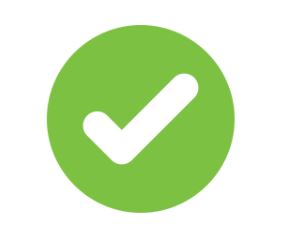
Borrow up to £250,000

Flexible terms from 3-25 years

We consider all credit histories

Employed, self employed, pension and benefit income

We're a direct lender, so there are no hidden broker fees

Representative Example: A secured loan of £43,000 payable over 9 years on a fixed rate of 10.43% for the first 5 years, followed by a variable rate, currently 12.00%, would require 60 monthly payments of £651.19 followed by 48 monthly payments of £670.67. The total amount repayable would be £71,263.56, this includes interest, an arrangement fee of £1,999 and a processing fee of £499. The overall cost for comparison is 12.9% APRC representative.
How it works
Organising your finances can sometimes feel stressful, but we want to make it as easy as possible for you.
In just 3 simple steps you could have the money in your bank account. All you need to do is:
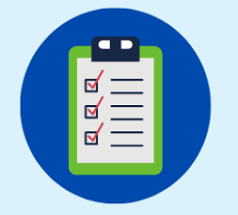
1: Enquire
Complete our quick and easy online enquiry form. Alternatively, you can speak to an advisor instantly by calling us or starting a live chat.

2: Your details
One of our qualified advisors will call you to discuss your enquiry and work out a monthly payment that meets your needs and circumstances.
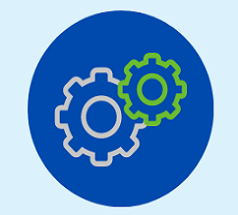
3: We'll do the rest
We'll help you complete the paperwork and any other supporting documentation required.
What do our customers say?
You can relax knowing you’re working with a highly rated team. But don’t just take our word for it, visit our website and read our reviews – they speak for themselves.
What is a secured loan?
Secured loans are a way to borrow money that use your home as security against the loan. This means that if you are unable to repay your loan, the lender can take your property as payment. The benefits of a secured loan include that it means lenders will have more confidence in you as a borrower, so they may offer you a larger loan, better interest rates on secured loans or lend you money despite having an adverse, poor or bad credit history or credit rating.
At Central Trust, we pride ourselves on offering some of the best secured loans in the UK. We provide clear and transparent information, making it easier to compare secured loans and make an informed decision.
All loans come with risks. For example, your credit score may decrease if you fail to repay your monthly payments on time. The biggest risk of a loan secured on houses is that if you are unable to repay your loan, your house is at risk of repossession, so it is important to make sure that you can afford any loan that you commit to.
At Central Trust, we would only ever repossess a house as an absolute last resort, and we always work closely with any of our customers who may be struggling to find better options.
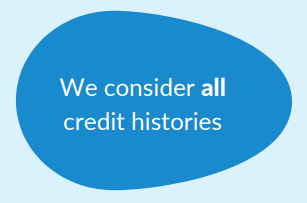
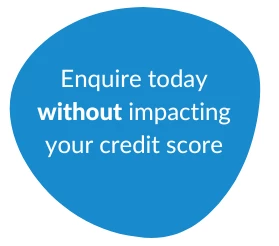
How does a secured loan work?
Like nearly all other loans, you will repay interest on top of the amount of money you borrow. You will be required to make regular monthly repayments for a set period of time, usually known as the “repayment period”. If you choose a longer repayment term, your monthly repayments will usually be lower, but you will pay more interest overall. A shorter repayment term will have higher monthly repayments, but you will pay back less interest in total. With Central Trust, you can choose a loan term that best suits your needs.
Just like a mortgage, the interest rates for secured loans can either be fixed or variable. A fixed rate means that you will always repay the same amount of money, and a variable rate means that the amount you repay can go either up or down.
We can provide either fixed or variable secured loan rates, and our repayment periods range from 3 years up to 25 years depending on how much you want to borrow.
Why choose Central Trust?

35 years' experience
We are one of the UK's longest established specialist lenders trading since 1988 giving us over 35 years' experience providing secured loans, homeowner loans and second mortgages.

Simple application process
You can call our team directly on 0800 980 6273 (Mon-Fri:8:00am-7:00pm) or you can enquire online at any time using our quick and easy online form.
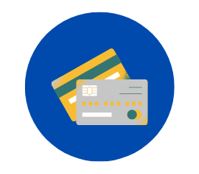
All credit considered
We understand that life happens and there's more to your story than your credit score or recent pay slip. So if you have a less than perfect credit score we could still help.
What’s the difference between a secured and unsecured loan?
Unsecured loans do not have the risk of you losing an asset like your home, however they can be harder to get so you will most likely need a good credit score. Secured loans mean that you offer something in return (usually your home) if you are unable to repay the loan.
Secured loans checklist:
- Risk: Your home or property may be repossessed if you don’t keep up your repayments
- Credit Score: Using your home as security may help you get a loan with bad credit
- Loan Size: Loans secured on property may help you borrow more money than unsecured / “personal” loans
- Interest Rates: Interest may be lower as lenders have less risk
Unsecured / Personal loans checklist:
- Risks: Defaulting will affect your credit score, but your home won’t be at risk
- Credit Score: It is often harder to get an unsecured loan with bad credit
- Loan Size: Lenders may offer smaller loans as there is more risk of you being unable to repay larger amounts
- Interest Rates: The amount of interest you are charged will rely more on your credit score. The poorer your score, the more interest you may be charged
Case studies

Home improvement loan
For an applicant with poor credit history.

Secured loan
For a self-employed client with limited trading history.

Debt consolidation loan
For an applicant with multiple lines of credit.
What should I consider when taking out a secured loan?
Taking a secured loan means putting your home at risk of repossession if you do not repay the loan. This means that you should think carefully before taking one out. There are three main things to think about:
Affordability:
Are you certain that you have enough money available each month to make your repayments? Are there any potential costs that could cause an issue in the future?
Loan-to-value ratio:
Before lending you money, a lender will check how much “equity” is in your property. In simple terms, equity is the difference between how much your house is worth, and how much is left to repay on the mortgage. This means that there must be enough value in your home after the mortgage is repaid, to cover the amount you borrow on a secured loan.
Interest rates:
Secured loans usually have a fixed or variable rate. With a fixed rate, the interest rate stays fixed for the duration of the introductory period. However, if your loan has a variable interest rate, there is the chance that your monthly repayments could go up. It is important to consider this when checking the affordability – if your monthly repayments were to increase, could you still afford them?
Risks of a secured loan
Loans secured on houses have the same risk as other loans including negative marks on your credit history if you fail to repay the loan, and additional charges for missed payments. In addition, there is also the risk of losing your home if you cannot afford to repay your debt. This means that it is very important to consider these risks, and make certain that you can afford to repay the loan before you commit to it.
We will help you consider all the options we have available, and will always keep your best interests at heart before making any recommendations to you. All our loans have a 14 day cooling off period after submitting the application, so if you change your mind you are completely free to do so! Also, if you were to ever experience difficulties repaying your loan, we would always do our very best to help you find a solution, and we would only ever repossess a property as a very last resort.


Ready to enquire?
Talk to our qualified mortgage experts
![]()
Friendly UK based advisors

Enquiring won't affect your credit rating

Fast turnaround times 7-10 days is possible

No phone menus - immediate contact from our advisors

We are a direct lender, so we'll work with you from start to finish
FAQ's
Secured loans make it easier for people with lower credit scores to borrow money. Loan providers are more likely to lend money to someone with bad credit if they put up a security, since they will have something in return if you don't pay them back.
If you are unable to repay your loan (known as “defaulting” on a loan), the lender has the right to repossess and sell the property used as security in order to get their money back. If there is any money left over from the sale, it will be given to you. However, if there is still a debt outstanding you will still need to pay this. We would always recommend speaking to your lender as soon as you begin to have any financial difficulty. Most will work with you to find an alternative solution.
As long as you are in contact with us, we would always help you find an alternative solution if you are having problems - repossessing someone’s home is something that we would want to avoid at all costs.
Always start by making certain you can afford your monthly repayments. If you don’t make your payments regularly and on time, you risk damaging your credit score and losing your home. Setting up a direct debit can be the best option for many people and always make sure that you stick to your budget and do not overspend.
As with nearly all forms of credit, making regular repayments on time is likely to have a positive effect on your credit score.
If you’re a homeowner, and you use your home as security, you may be able to borrow money with bad credit.
If you have bad credit you may have to pay a higher interest rate, but this will depend on your situation. If you do have credit issues, you should always think whether getting into more debt is the best thing to do.
Secured loans make it easier for people with lower credit scores to borrow money. Loan providers are more likely to lend money to someone with bad credit if they put up a security, since they will have something in return if you don't pay them back.
A secured loan is a way to borrow money. It is backed by something you own, like a property or car. If you don't pay back the loan on time, then the lender can take the item used as security in lieu of the loan. The idea behind a secured loan is that lenders want to make sure that people are going to repay the loan on time, so by offering collateral against a loan, a lender will have more confidence in the borrower.
Yes. If you find yourself in a position to repay your loan early, you will be able to do so. Some companies may charge you an early repayment fee for doing so, but some lenders won’t. Even though you may be required to pay a fee, you might still repay less money in total, as you will no longer be paying extra interest.
A secured loan may be a good idea if you have bad credit and are having trouble securing other loans. Secured loans usually carry lower interest rates than unsecured loans, but the lender will require collateral, such as your home. This means you must make certain that you can repay the loan.
If you don't pay back a secured loan, there is a chance that your property may be repossessed as collateral to satisfy the debt. If you are experiencing financial difficulties, a good lender should do what they can to help you rather than repossess your home. Options such as managed repayment plans, or repayment holidays may be available to you. We will always do whatever we can to help you, and would only ever repossess a property as a last resort. But it is important to know that late payments may incur additional fees, and failure to repay your loan may also be recorded on your credit history.
It depends. The length of time it takes to repay a loan will depend on how long you take the loan over, and whether you miss any scheduled repayments. Loans can typically be taken out over 3 to 25 years. Generally, the longer you take the loan over, the lower your monthly repayments will be, however you will repay more interest overall. If you take a loan over a shorter period, your monthly costs will be higher, but the total cost will be lower because you will pay less interest.